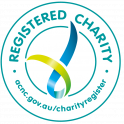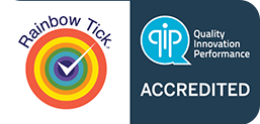Where can I find counselling for children in Croydon?
If you’re looking for counselling for children in Croydon, you don’t have far to go. Better Place Australia child counselling in Melbourne has counselling rooms right here in Croydon. You’ll find us at Unit 1/16-18 Croydon Rd. This is easily accessible via Mt Dandenong Road, Maroondah Highway, Wicklow Avenue or Kent Avenue.
The office is also quite close to Croydon train station and is an easy 200m walk, located almost at the corner of Croydon Road and Coolstore Road.
In case you ever need other locations for child counselling, here is a list of child counselling locations with Better Place Australia:
Better Place Australia counselling for children in Croydon has positive outcomes
Parents want their children to live happy, full lives. This is also the aim of Better Place Australia counselling for children in Croydon. Our qualified and caring child counsellors have a track record of seeing positive outcomes for children after counselling sessions.
Child counselling equips the child with the tools to navigate challenges, build resilience and manage emotions.
The challenges could be:
- a change of school
- family conflict
- loss and grief
- peer pressure
- puberty
- any other issue that may be having a negative effect on the child’s mental health and well-being.
It is advisable to engage child counselling early to help prevent the issues from escalating.
What happens during child counselling?
Better Place Australia child counsellors work one-on-one with children, assessing their needs, and using age-related techniques to equip them with the tools to navigate and manage life’s challenges. Techniques range from cognitive behaviour therapy to narrative or play therapy, depending on the child’s age and capacity.
These techniques can help children to:
- use coping skills
- express their feelings in a safe place
- manage strong emotions such as blame, guilt and anger
- learn how to express themselves and relate positively to others
- understand their family and friend relationships as they are now and how they change
- develop resilience and improve emotional stability.
How can parents be proactive and help their child?
It is a fact that it can be harmful to a child being exposed to parents in conflict. Whether the child is experiencing conflict at home, at school or somewhere else, parents can be proactive and help protect their child by initiating some simple steps.
These include:
- sitting and listening to how the child feels about things
- putting the interests of the child first during decision-making
- ensuring both parents have meaningful involvement in their child’s life
- keeping parental conflict away from the child as much as possible.
The aim of Better Place Australia child counselling
Every child is different and reacts in a different way to cope with life’s issues and changes. Some children handle these better than others. At Better Place Australia child counselling in Melbourne, we aim to help children understand and manage the changes they are experiencing.
Here are just some of the skills children learn through Better Place Australia child counselling:
- an increased ability to better understand and manage their feelings
- decreased levels of distress and challenging behaviours
- improved communication and problem solving
- increased ability to trust and form healthy relationships.
If you are looking for child counselling in Melbourne and are in the Croydon area, then please contact Better Place Australia. We look forward to assisting you.
Learn more about the mental health and well-being of your child
If you’d like to learn more about mental health and well-being in children and family units, visit the Centre for Better Relationships website.
Centre for Better Relationships is the research and advocacy arm of Better Place Australia, with resources for you to learn more.
Read sector news articles such as: Understanding Child Development; and Highlighting the Imperative of Investing in Children and Young People’s Safety.
There are also learning videos you can watch, such as: Preventing Emotional Abuse of Children; Supporting Children Who Have Disclosed Trauma; The Whole Child; and The Role of Parents Preventing Emotional Abuse of Children.
By learning more, you will be better equipped to protect your children and support them during tough times.






